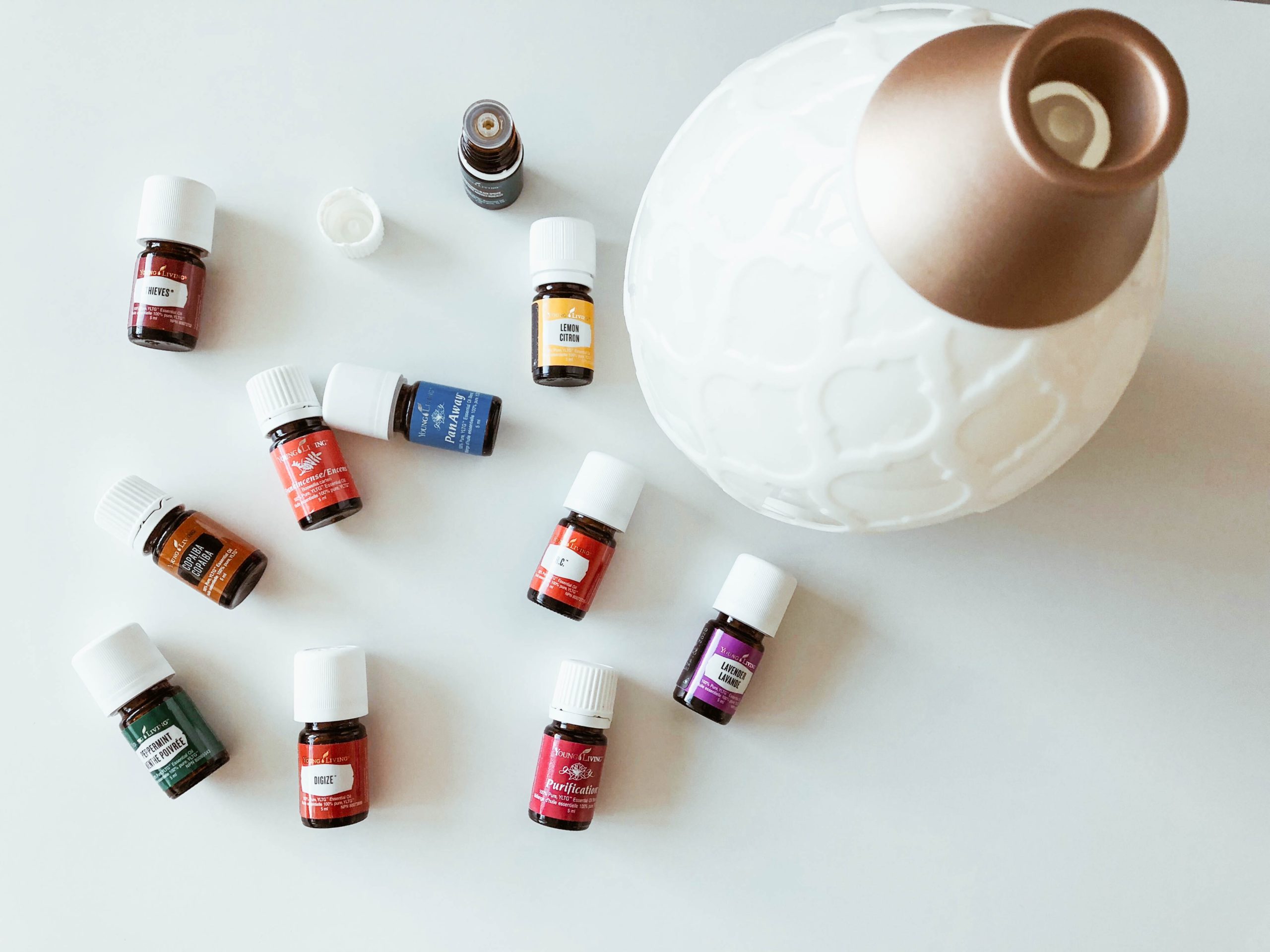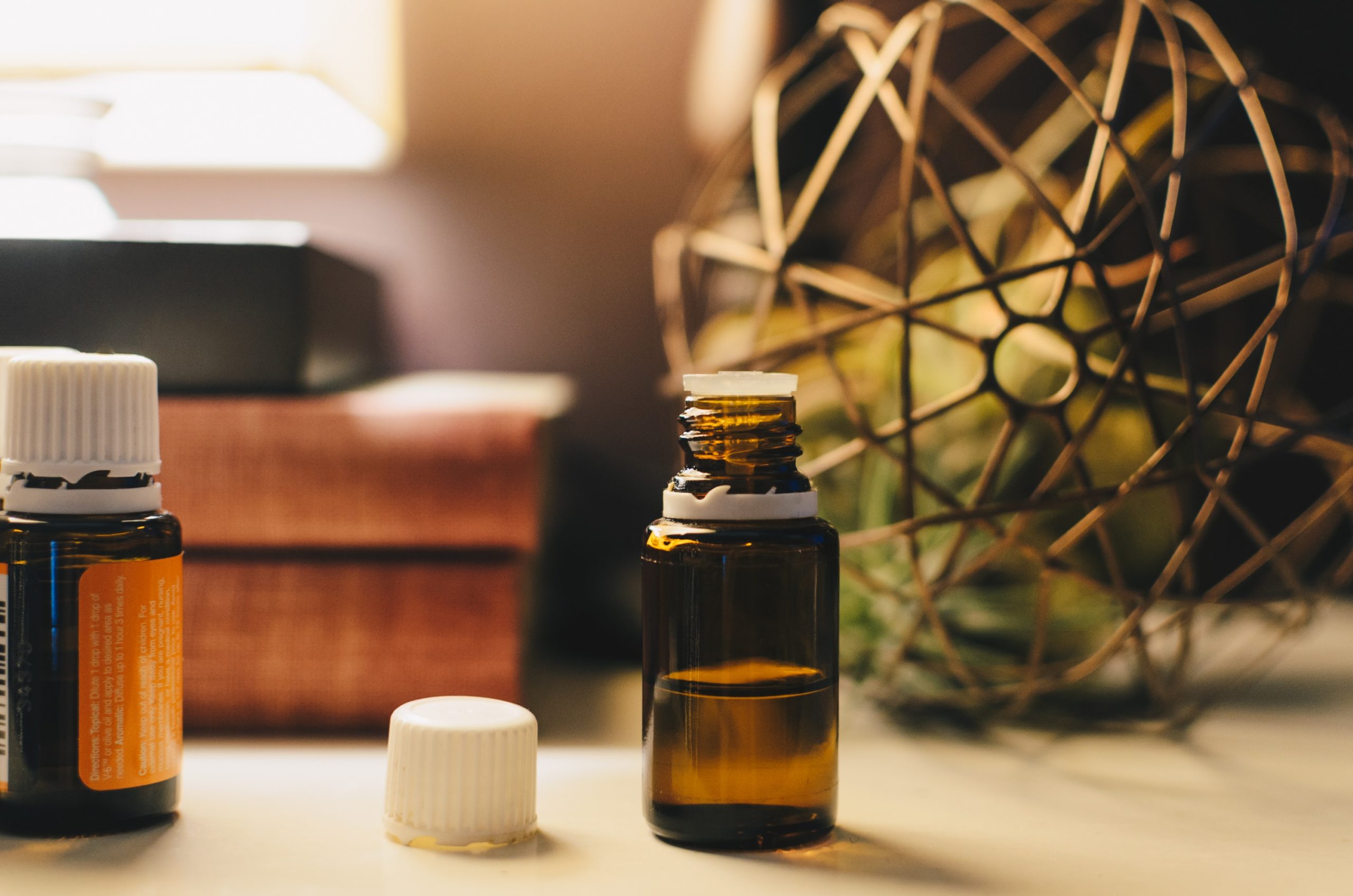I have a hard time relaxing. I toss and turn at night because I can’t turn my mind off. My thoughts wander when they shouldn’t, like during a deep tissue massage or acupuncture session. I tell myself it’s OK to let go but my body resists. Something is not in sync. Until I started using aromatherapy at home.
What is Aromatherapy?
The closest sense we have, out of all five, to bridging the gap between mind and body is actually smell. It’s our strongest, most dominant asset and it is best able to influence brain activity. By simply inhaling an aroma, we can stir up memories, activate our immune system, impact mood, affect blood pressure and stimulate digestion. The easiest way to achieve these health-promoting benefits is by using aromatherapy at home, also called essential oil therapy. By breathing in essential oils, we are able to balance our physical, psychological and spiritual selves.
What are the benefits?
There are multiple benefits to using an essential oil diffuser including my personal favorite, to promote better sleep. Certain scents can help you to fall asleep faster and exert a calming effect on the mind and body. Diffusing essential oils can also help to build up our resilience against colds, flu and germs.
How to Use Aromatherapy at Home
I’m not just talking Glade plug-ins, Febreeze spray or lighting a scented candle. The most popular way these concentrated oils are being dispersed today are through diffusers and they can be kept anywhere including your bedroom, office, living room or bathroom. To start, there are ultrasonic diffusers which get their name from the electronic frequencies they use to vibrate the water in such a way that it vaporizes into the air. This is the most common type of diffuser you’ll see in people’s homes.

For the person on-the-go, consider investing in a portable essential oil diffuser that connects via USB for an instant boost when you’re traveling, stuck in traffic or at work. A more advanced approach to healing is an atomizing diffuser, which doesn’t alter the chemical composition of the oils but rather transforms them into a vapor. It is the fastest, most powerful way to reap the aromatic benefits of essential oils.
Depending on the device, you can typically adjust the intensity as well as how long it runs. Similar to a humidifier, I like using ultrasonic diffusers that release a faint mist which can actually counteract the dryness in the air—great for cold weather. Not to mention your home will begin to smell like the inner workings of a spa.
In short, diffusers add oxygen molecules into the air and once inhaled, they travel to and stimulate what’s called the “emotional brain” or the limbic system which controls variables such as emotion, behavior, long-term memory and hormone balance. But most people don’t know exactly what smells have what effects.
Which essentials oils are right for you?
1. Oils such as lavender, ylang-ylang and frankincense have been known to improve and support the body’s natural sleep cycles as well as combat insomnia, racing thoughts and stress.
2. Eucalyptus, peppermint and tea tree are all powerful antimicrobials that can stimulate the production of white blood cells. When diffused into the air, they are able to kill bacteria and support respiratory health by relieving things like a cough or nasal congestion.
3. Rosemary and lemon have the ability to improve energy, focus and cognitive function. When absorbed, they can increase oxygen and blood flow as well as help clear brain fog.
4. To support emotional health, oils such as bergamot, patchouli and rose can eliminate anger, alleviate stress or anxiety and instill a positive atmosphere.
With that in mind, combining essential oils to make a personalized blend is a great way to tailor your diffuser to meet your specific needs. A key to the perfect pairing is to mix oils that share some of the same properties. A few examples include peppermint and eucalyptus as a decongestant and anti-inflammatory; lavender and bergamot for sleep; and rosemary and lemon for an anytime energy boost.

A word of caution
Although essential oils are the holy grail of the health world as of late, it’s important to do your research on the brands you’re using and beware of synthetics. And when it comes to diffusing, there is a limit as to how much and how often. Overexposure to aromatherapy at home can lead to nausea and headaches and even an increase in blood pressure and heart rate. It’s recommended that you turn your diffuser on between one and three times a day for up to 30 minutes max, which is still plenty of time to transform your space into a sweet-smelling oasis.
About the Author/s
Abby is The Digest's Managing Editor. She spends her time looking at dogs on Instagram and eating her way around Jersey City.
